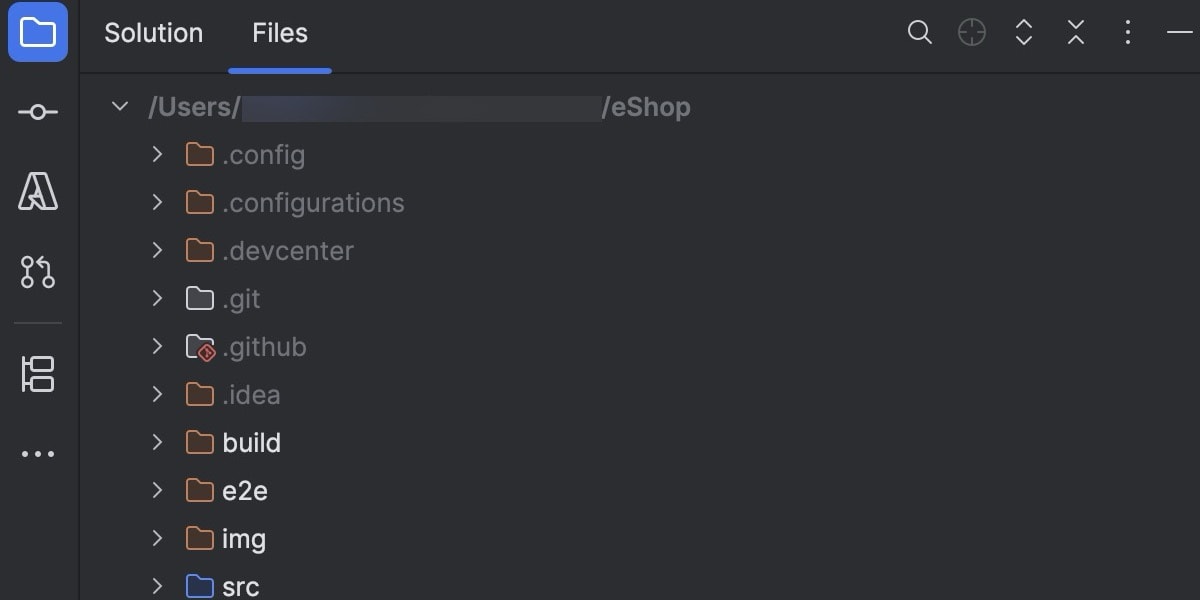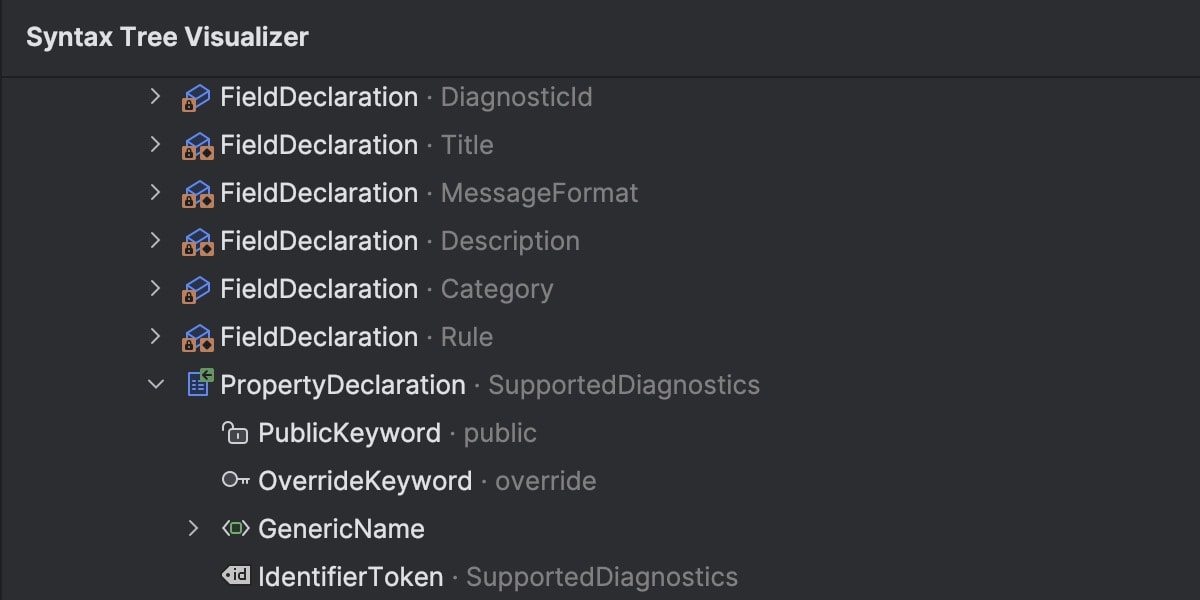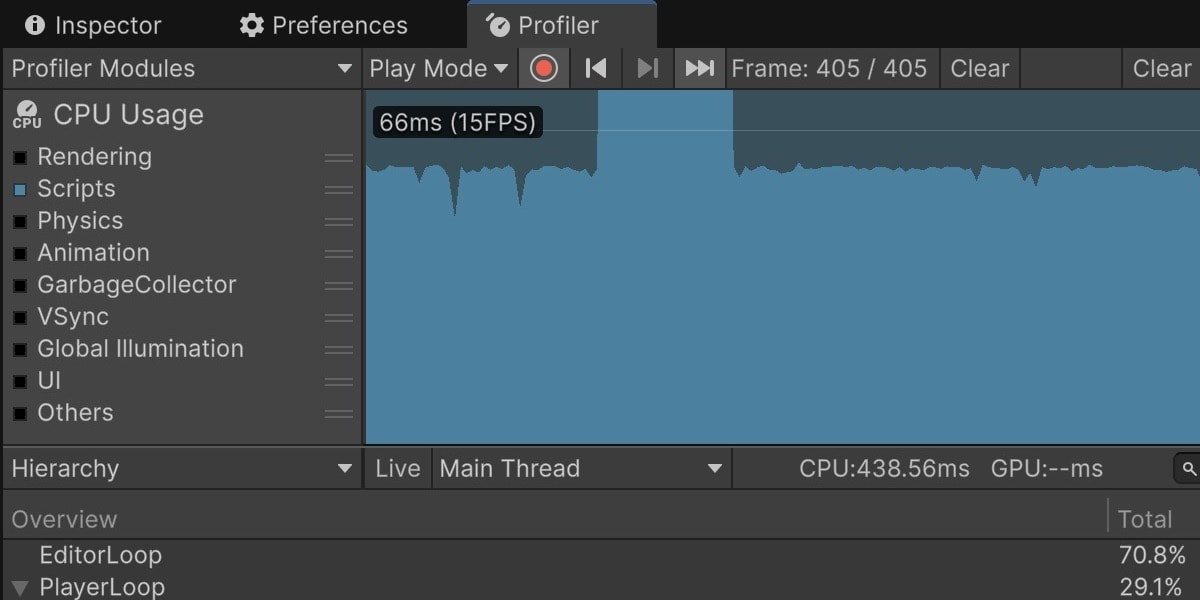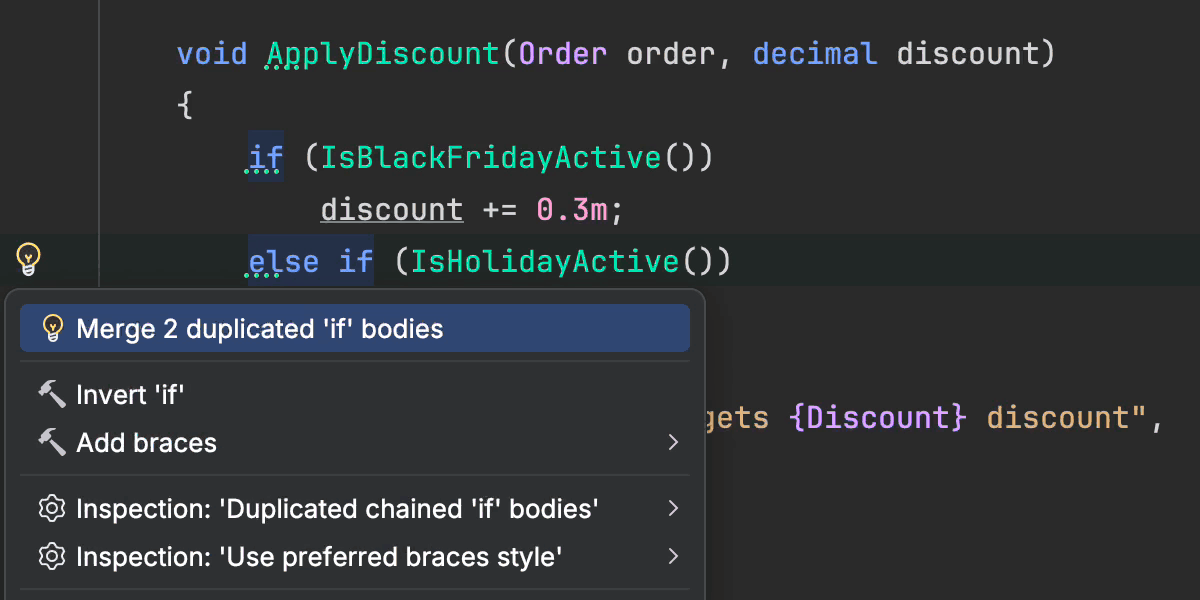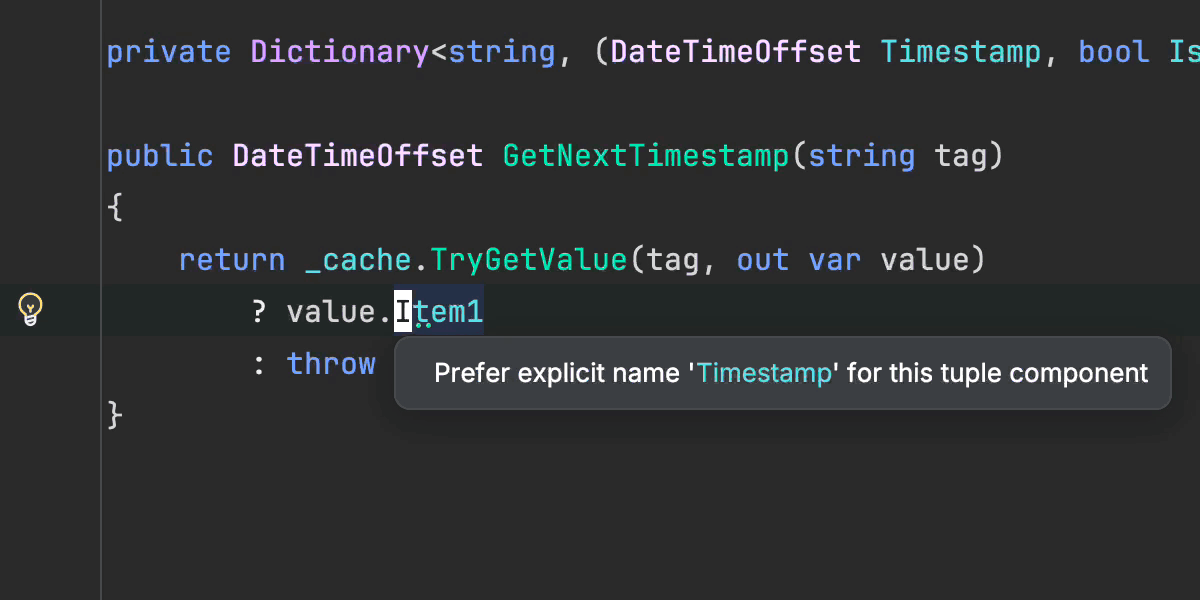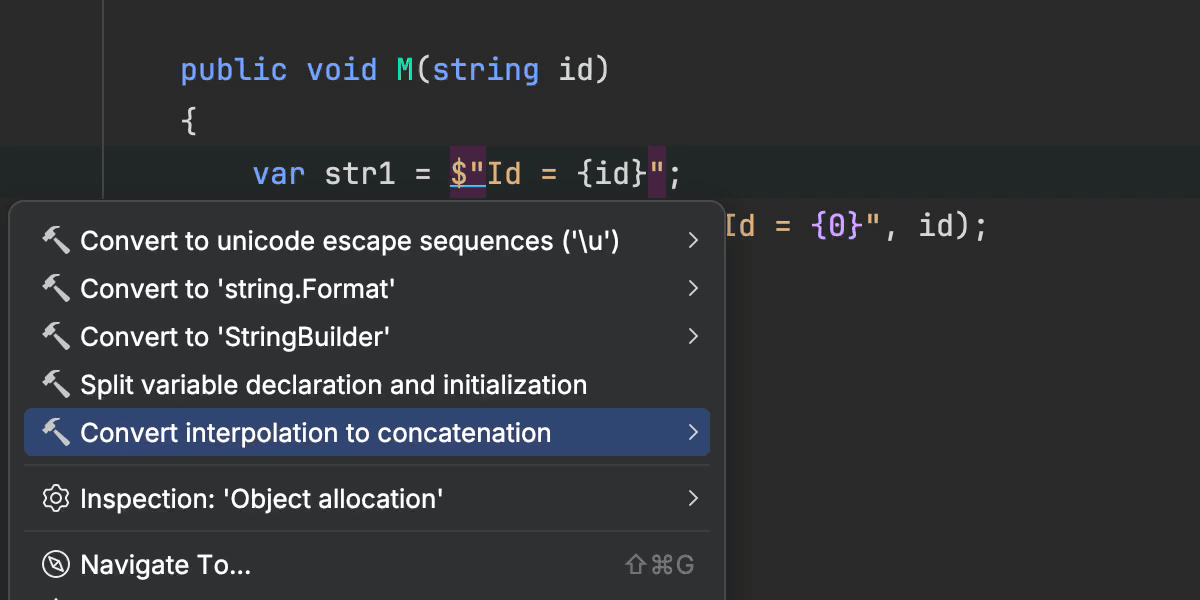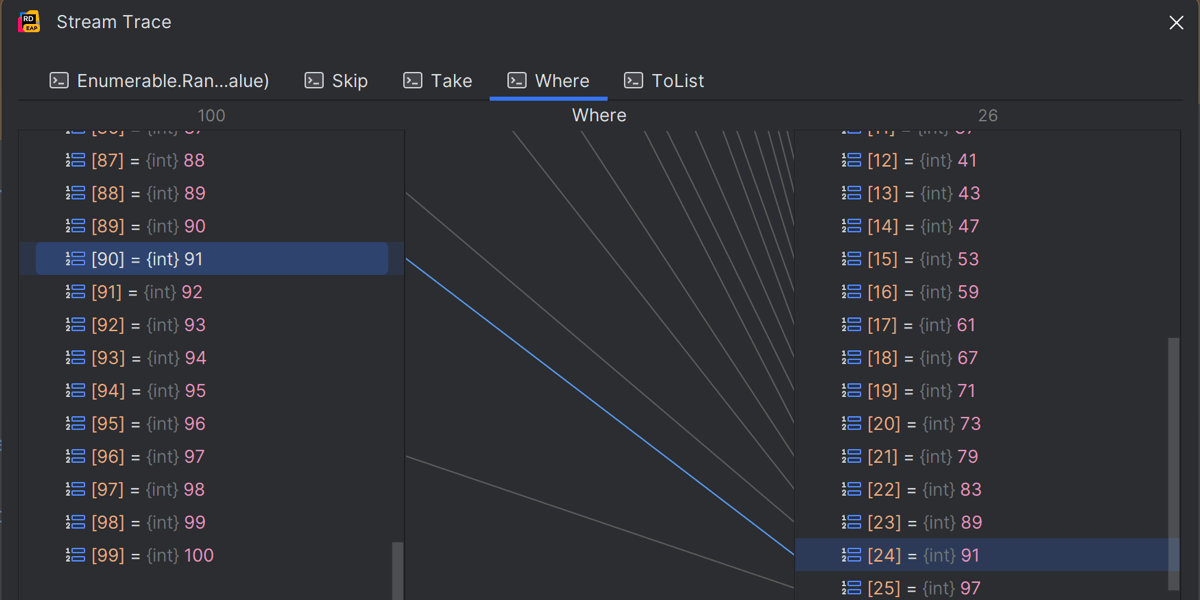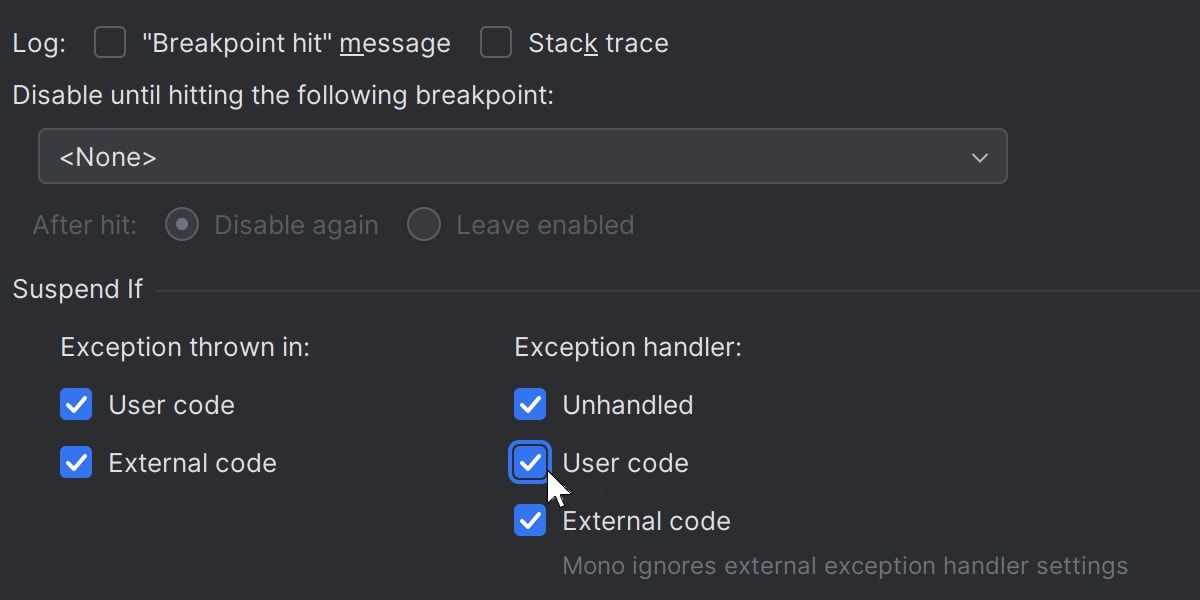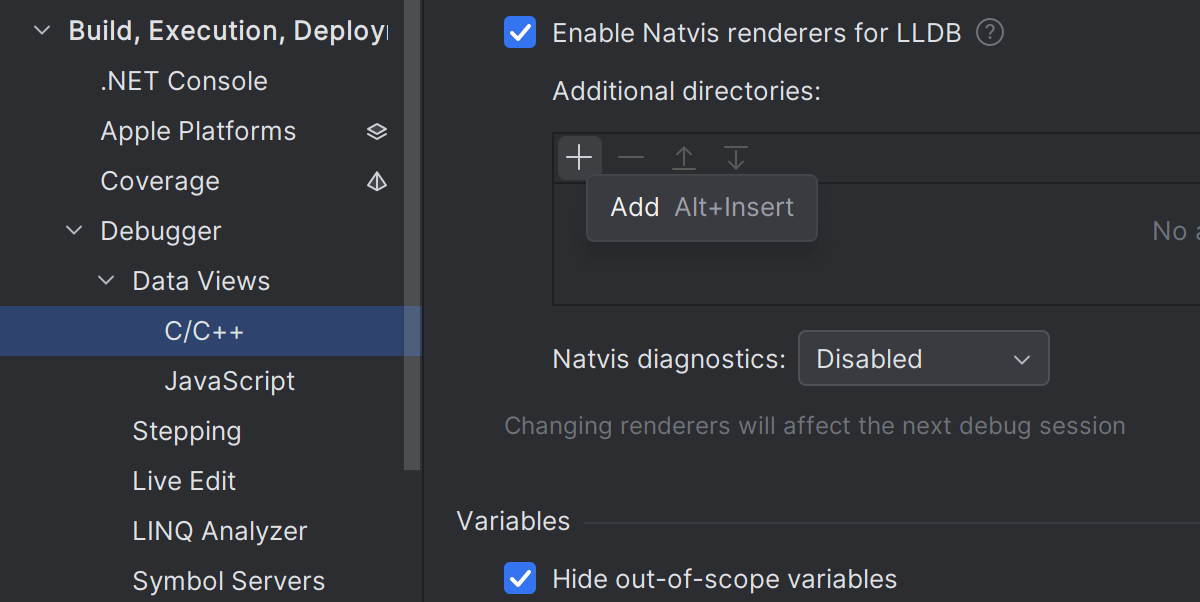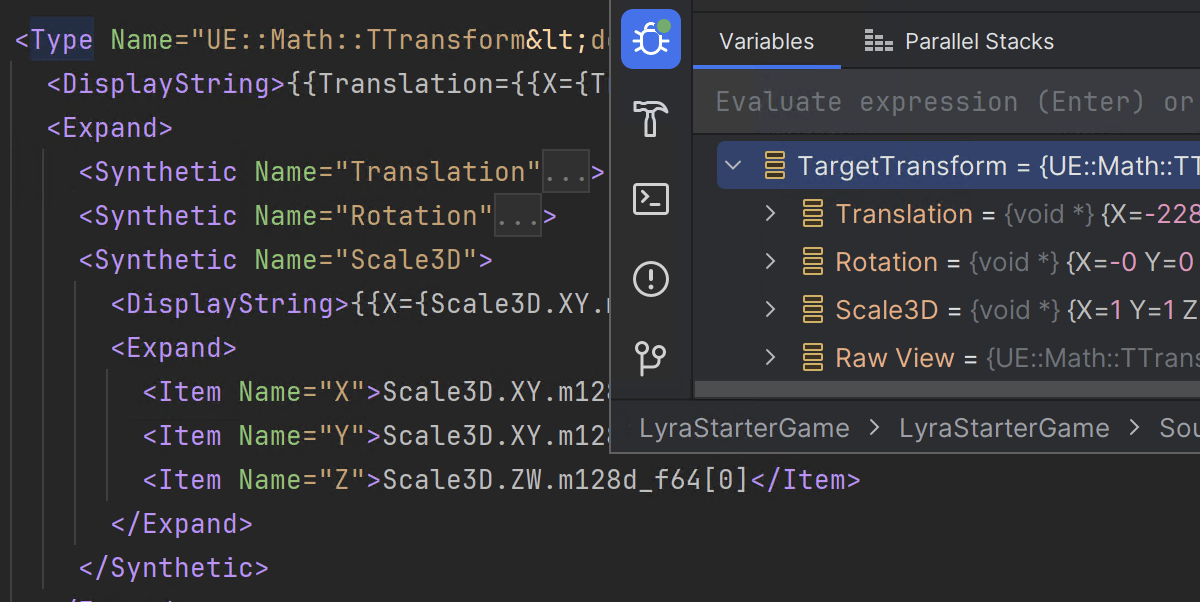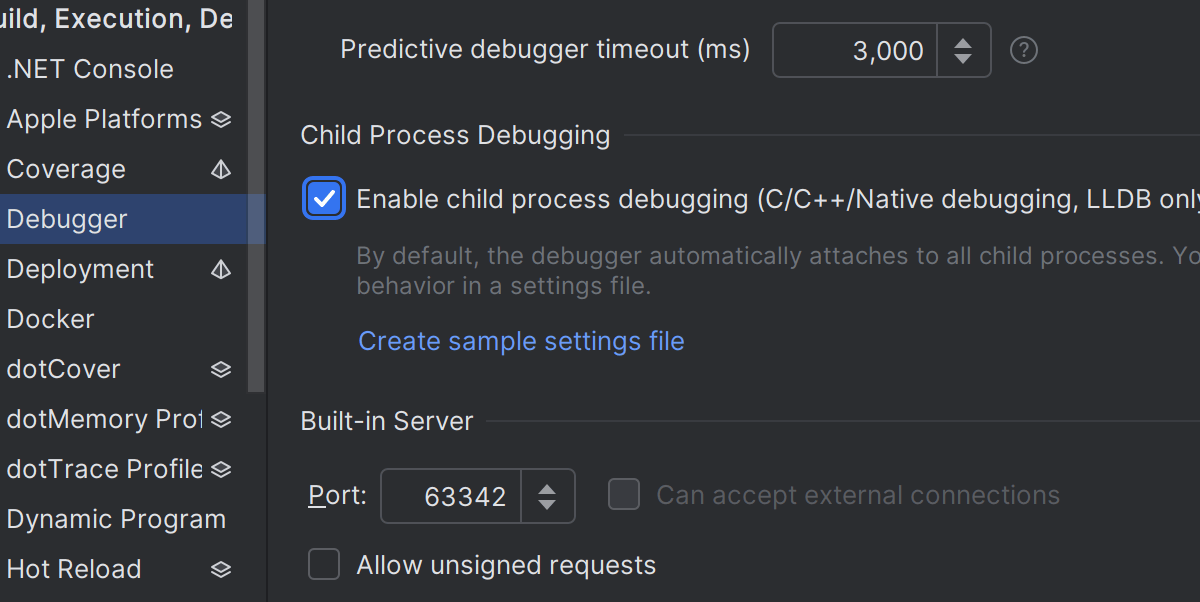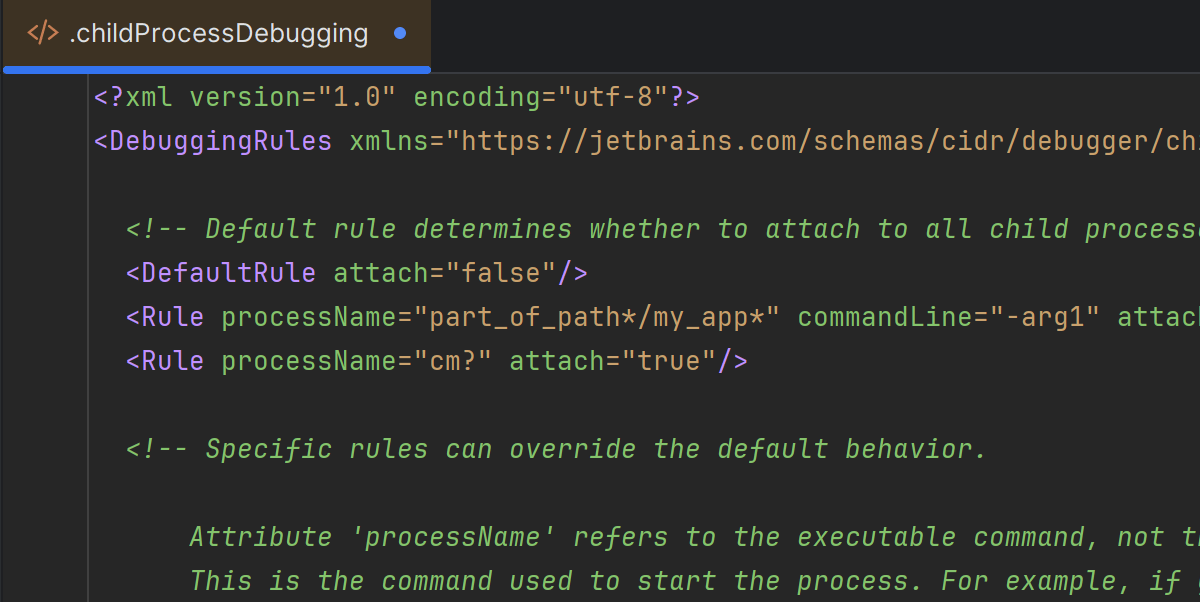What's New in Rider 2025.1
Rider 2025.1 delivers initial support for .NET 10 and C# 14 preview features. This release introduces the new Files view for repository-wide visibility, a Roslyn syntax tree visualizer, and numerous enhancements for debugging both .NET and C++ solutions. Game developers can leverage the Unity Profiler integration, while AI power users benefit from a fresh selection of newly supported LLMs.
Key updates
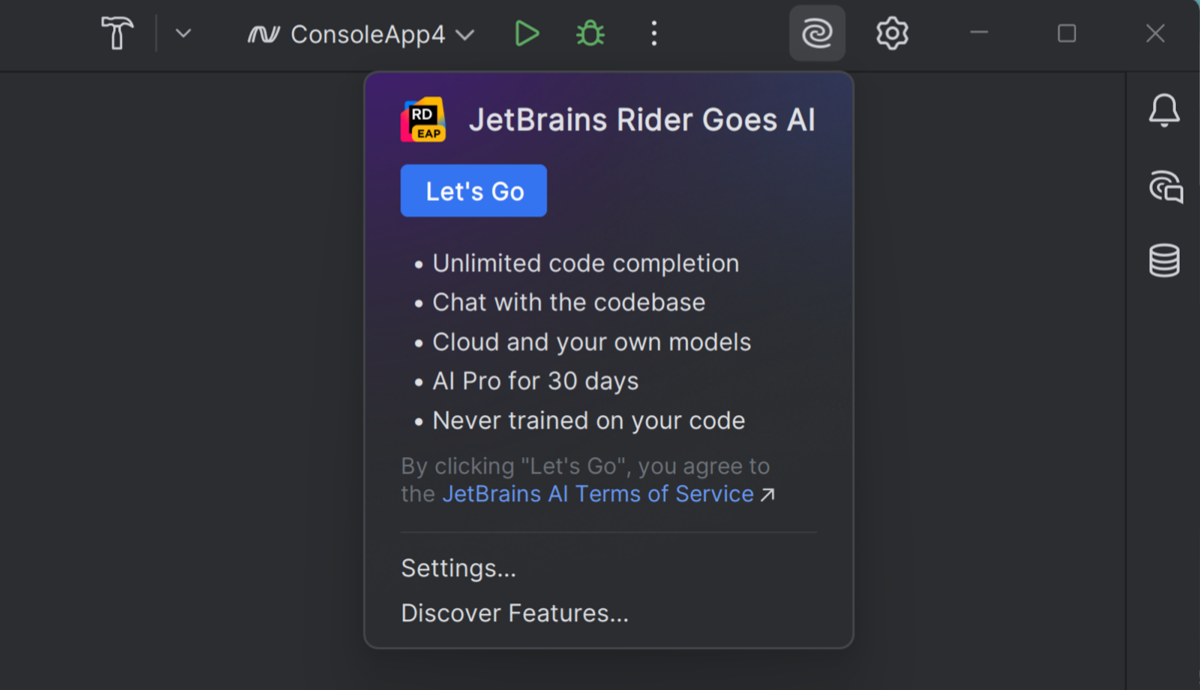
Rider goes AI
JetBrains AI Assistant has received a major upgrade, making AI-powered development more accessible and efficient. With this release, AI features are now free in JetBrains IDEs, including unlimited code completion, support for local models, and credit-based access to cloud-based features. A new subscription system makes it easy to scale up with AI Pro and AI Ultimate tiers.
This release introduces major enhancements to boost productivity and reduce repetitive work, including smarter code completion, support for new cloud models like GPT-4.1 (сoming soon), Claude 3.7, and Gemini 2.0, advanced RAG-based context awareness, and a new Edit mode for multi-file edits directly from chat.
Repository-wide visibility in the Solution Explorer
Navigate your entire codebase with Rider's new Files view. This redesigned view lives alongside your Solution view. The Files view shows your complete repository structure from the root, making it easier to work with full-stack projects, configuration files, and everything else that makes up your modern development environment. To enable repository-wide visibility, select New Files View in the Solution Explorer tool window settings.
Roslyn syntax tree visualizer
You can now view and explore C# syntax trees directly inside the IDE with Rider's new Roslyn syntax tree visualizer. The visualizer provides real-time tree visualization that stays synchronized with your editor.
You can interactively explore nodes and inspect their properties, quickly navigate between code and corresponding tree nodes, and use comprehensive search and filtering capabilities. Learn more.
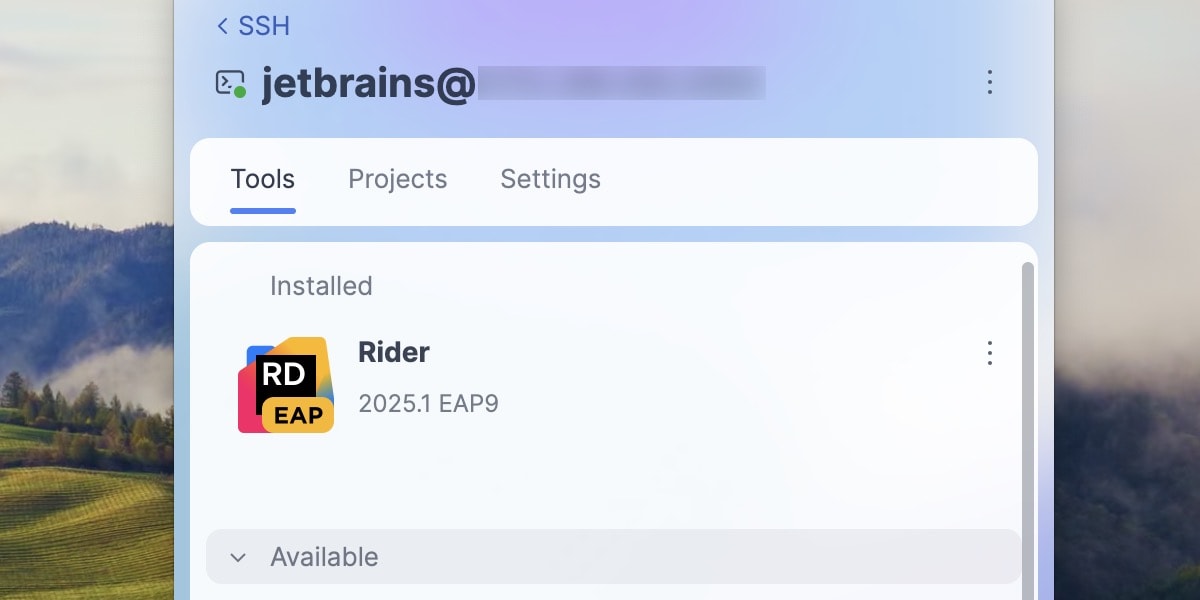
Remote development on Windows host machines
Starting with Rider 2025.1, remote development on Windows hosts is now supported via the JetBrains Toolbox App. While Gateway remains available for Linux connections, the full transition to the Toolbox App as the primary hub for remote development is underway. Learn more about how you can use the JetBrains Toolbox App to connect to Windows, macOS, and Linux host machines from this blog post.
Unity Profiler integration Game development
Rider now integrates with the Unity Profiler, bringing CPU performance insights directly into your editor. The IDE fetches CPU usage snapshots and displays them inline with your code, making it easy to spot performance hotspots as you write and debug your Unity scripts. You can navigate seamlessly from calls in the Unity Profiler hierarchy view to their corresponding methods in Rider.
Support for .NET 10 Preview SDK
- Support for project templates from the new SDK.
- The ability to create, run, and debug projects targeting the new SDK.
- Initial support for the latest preview features of both C# 14 and VB 17.13.
Code analysis
New inspections and quick-fixes
This release also brings several new inspections targeting common pitfalls and inefficiencies across different C# versions, including but not limited to:
- New context action to convert string interpolation to concatenation
- Enhanced detection of code duplication patterns
- Improved tuple component name suggestions
For information on these and other improvements to code analysis, please see What's New in ReSharper 2025.1.
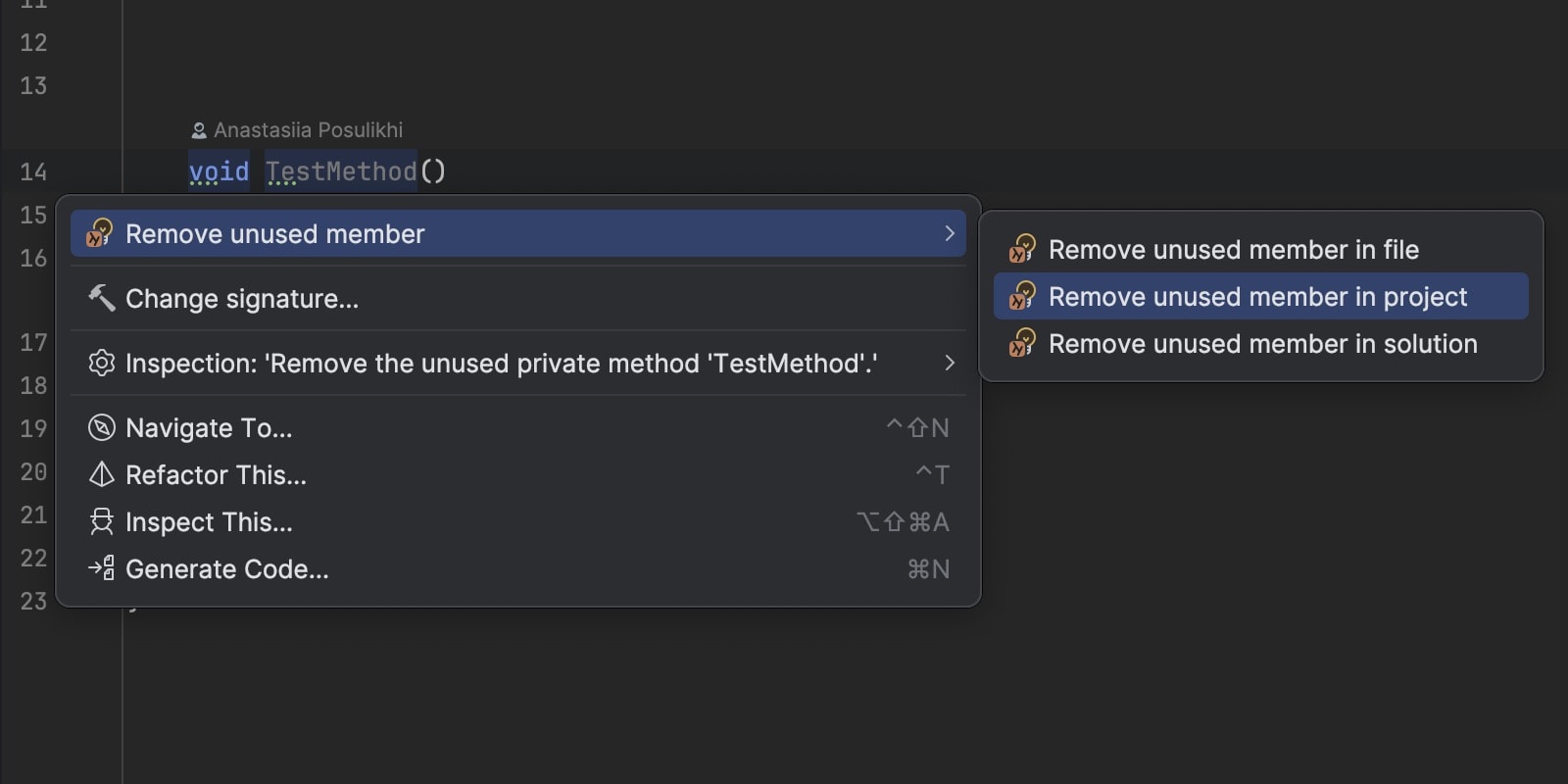
Scoped quick-fixes for Roslyn analyzers
Rider 2025.1 introduces scoped quick-fixes for Roslyn analyzers, allowing you to apply fixes at the file, project, or solution level in a single action. Now, instead of repeatedly applying the same fix, you can select the scope – whether a single file, an entire project, or the full solution – directly from the quick-fix menu.
C#14
Rider 2025.1 brings initial support for .NET 10 and C# 14 preview features, helping you stay ahead of the curve with the latest language enhancements.
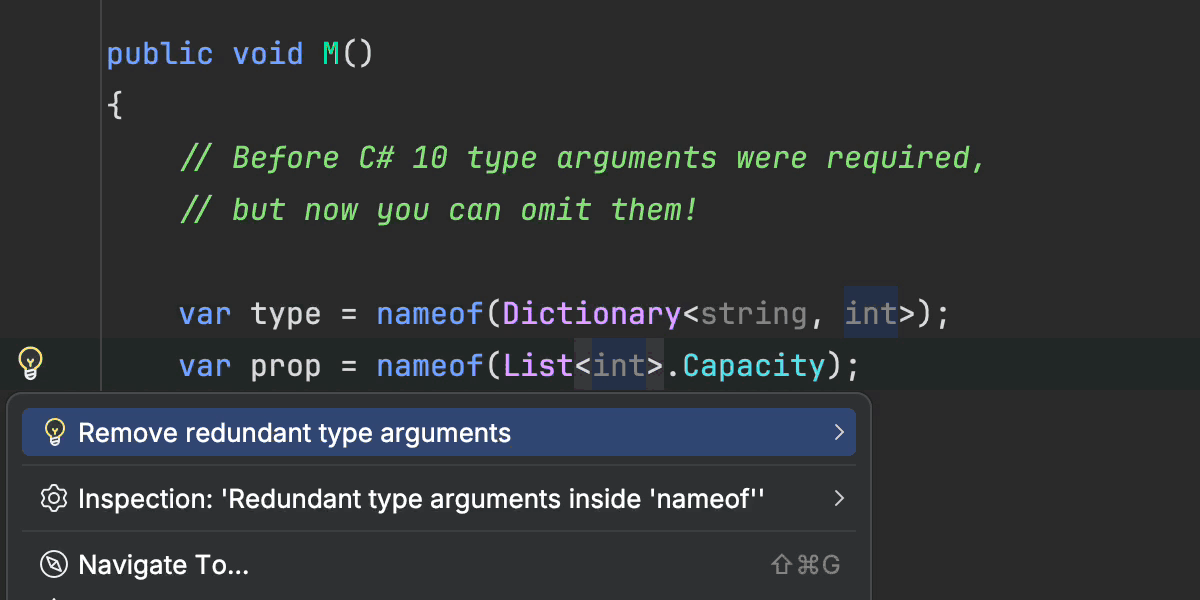
nameof of unbound generic types
Previously, using nameof required
specifying all type arguments, causing
unnecessary verbosity. C# 14 allows
nameof(List<>) without explicitly listing
type arguments. Rider now detects
redundant generic type arguments in
nameof expressions and provides a quick-
fix to simplify them.
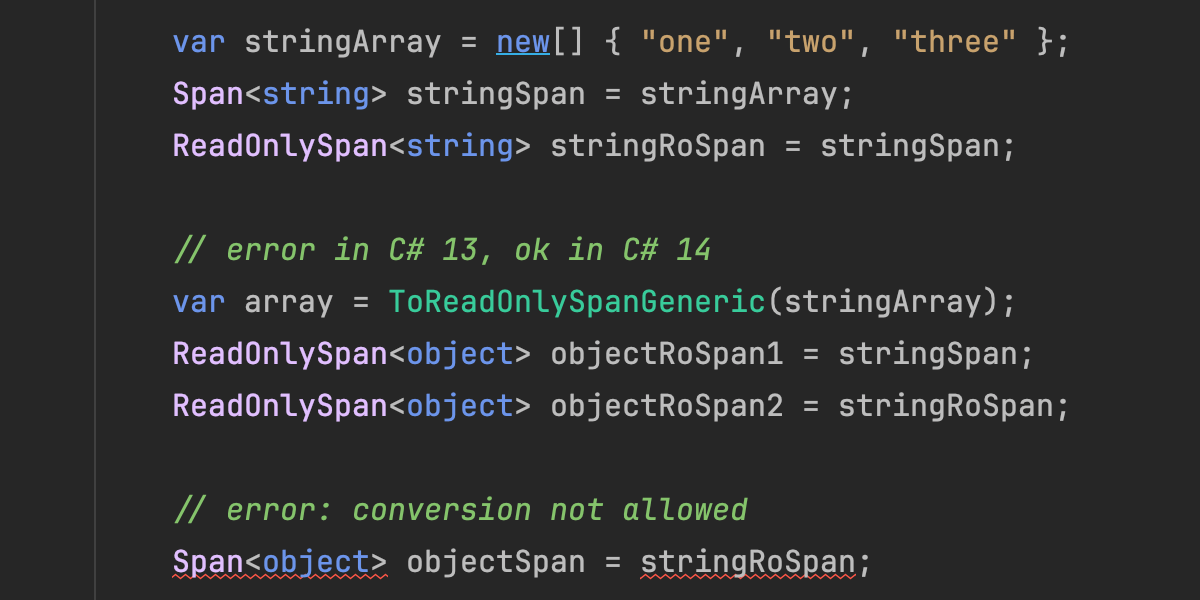
First-class Span<T> conversions
C# 14 introduces new implicit conversions
between ReadOnlySpan<T>, Span<T>,
and T[], making span-based code more
intuitive. Rider now fully supports
these conversion rules, helping you write
efficient, modern C# code.
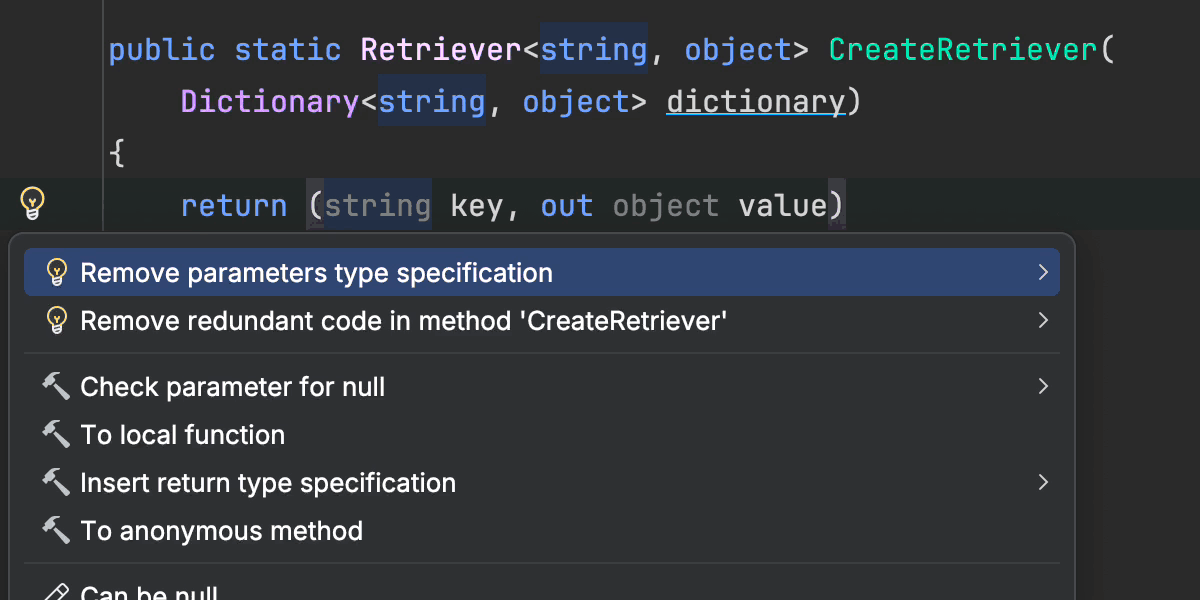
Modifiers on simple lambda parameters
With C# 14, you can now use parameter
modifiers like ref, out, in, and scoped in
lambda expressions without needing explicit
parameter types. Rider offers a quick-
fix to remove redundant type specifications.
Learn all about the improvements to C# language support in Rider and ReSharper on our blog.
F# support
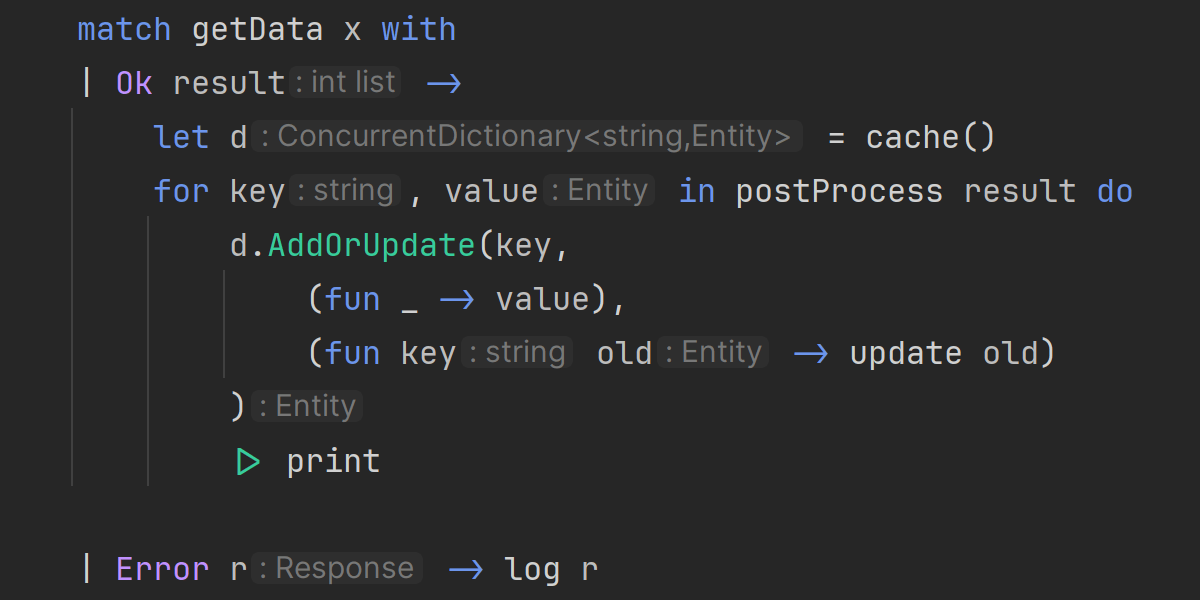
Type hints
Inferred types are now shown for more patterns, improving clarity when working with match expressions and other pattern-using constructs.
Code completion
We've rewritten various parts of F# code completion, so it now works faster, uses less memory, and provides more accurate suggestions.
C# in-memory references
We've optimized building metadata, fixed issues leading to inconsistent analysis and freezes, and improved cancellation for better code editing performance.
More information about other bug fixes and improvements for F# support can be found here.
User experience
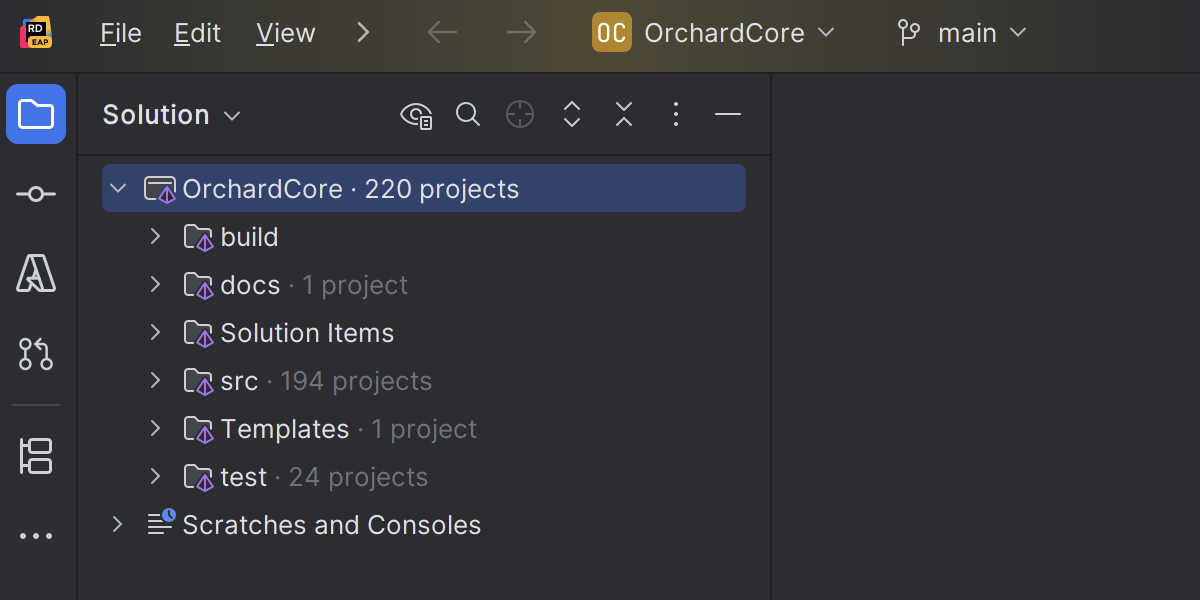
Merged main menu in the main toolbar on Windows and Linux
For Windows and Linux users, the IDE now offers a new option to merge the main menu with the main toolbar, creating a more streamlined interface.
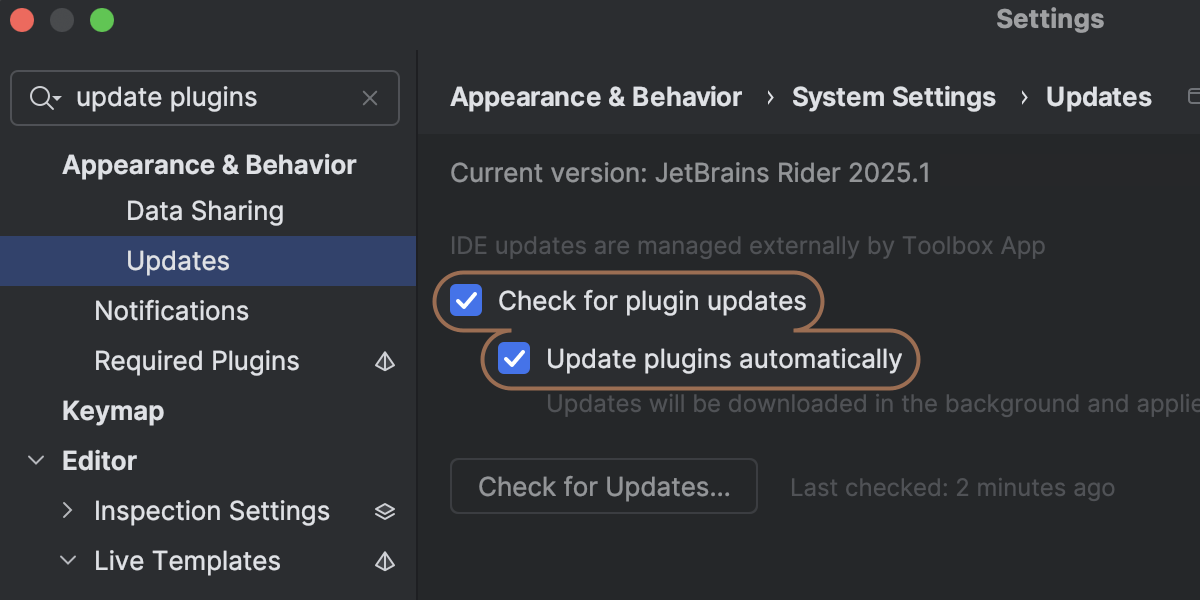
Option to set automatic plugin updates
You can set Rider to automatically update plugins in the background. It will download all available and compatible updates and apply them the next time the IDE is restarted without additional notifications.
Performance
Memory consumption
For this release, we've completely overhauled our string interning system. IDEs process an enormous number of strings, including source code, syntax elements, symbol names, and file paths, so efficient string handling is critical. Our new string interning system stores, on average, four times as many unique strings as its previous iteration and consumes about half as much memory to do so, freeing up resources in large-scale .NET projects.
Blazor & Razor improvements
Razor tag helpers and Blazor component support have been completely rebuilt for 2025.1.
This long-needed overhaul brings a 5%–10% reduction in analysis time for large ASP.NET
solutions with heavy component usage. You'll also experience fewer reanalysis events
when editing .cshtml/.razor files, as well as significantly reduced false error reporting.
AI Assistant
Improved AI completion for web frameworks
For the 2025.1 release we have focused on improving AI-based completion in the context of web framework components. These changes affect local full line code completion as well as cloud-based completion suggestions.
Consistent Naming for AI-Generated Unit Tests
Rider now ensures that AI-generated unit tests follow existing naming conventions in your project. This improvement helps maintain consistency across your test suite, reducing the need for manual renaming and making test integration smoother and more intuitive.
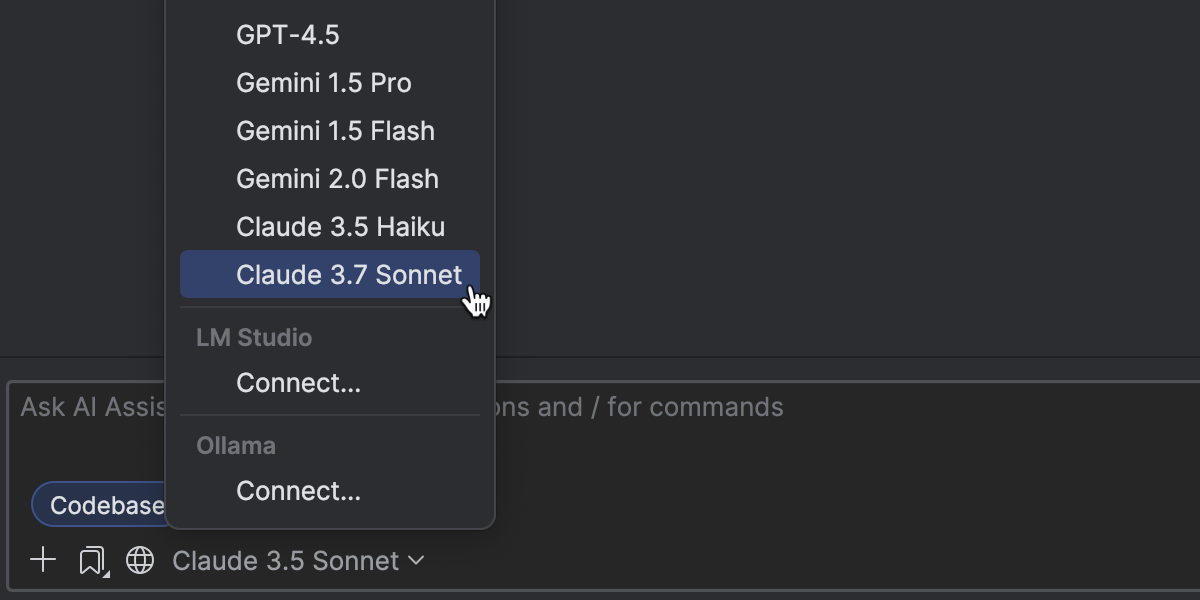
Support for more cutting-edge LLMs
JetBrains AI Assistant is advancing its line of
models! We've added support for Claude 3.7 Sonnet
and Claude 3.5 Haiku, now provisioned in Amazon
Bedrock. This means you'll benefit from sharper
responses, faster insights, and an even smoother
experience. AI Assistant's lineup of OpenAI models
now includes o1, o1-mini, and o3-mini.
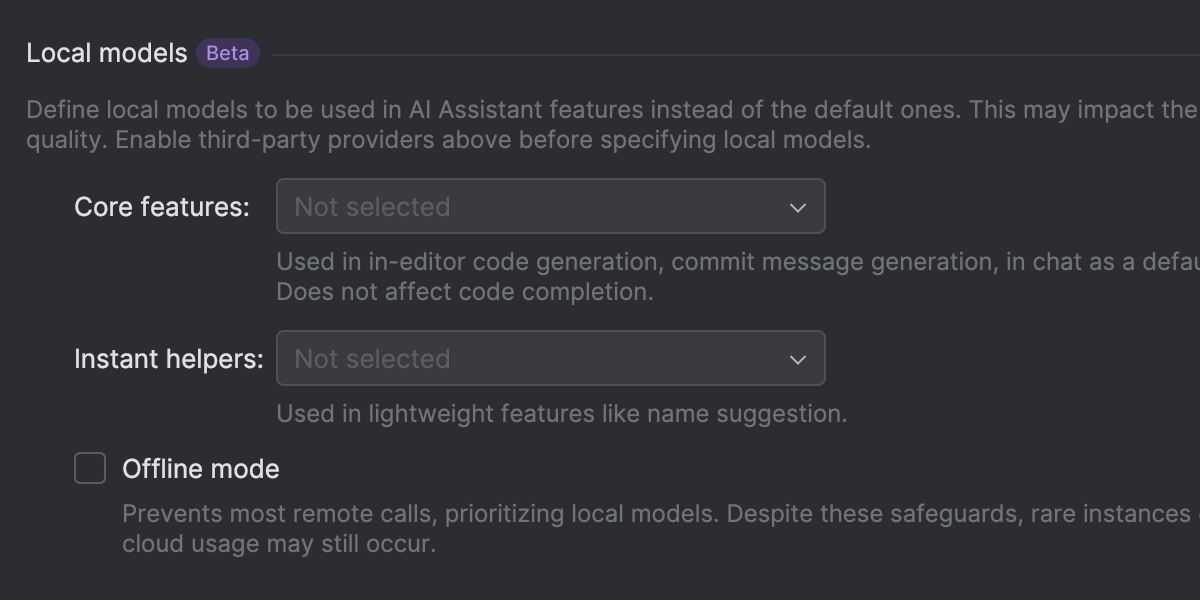
Offline mode: work with local models
AI Assistant gives you the flexibility to work with local models in offline mode or leverage cloud-based AI processing. Now it supports Offline mode, allowing you to work without an internet connection while still benefiting from AI-powered coding assistance. Use local models via Ollama or LM Studio for chat, code generation, commit messages, inline documentation, and more.
Learn more about the AI Assistant features from this page.
Debugger
.NET
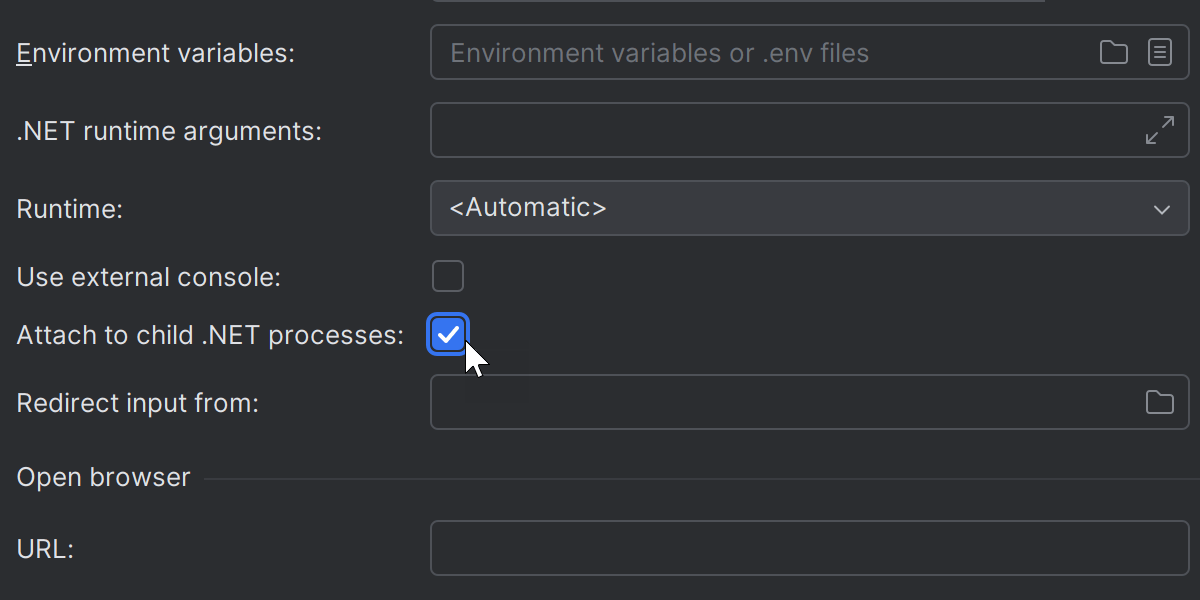
Automatic child processes attachment
Rider now offers automatic attachment to child and grandchild processes during .NET application debugging. When enabled in the run/debug configurations, the IDE tracks and attaches to all .NET processes spawned within the application's process tree.
Enable this feature using the new Attach to child .NET processes checkbox.
LINQ chain debugging
Rider 2025.1 comes with improved data visualization for LINQ expressions, making it easier for you to understand and debug complex LINQ queries directly in the debugger. You'll now be able to inspect query execution, see intermediate results, and better understand how your LINQ operations transform the data. For more information, please see documentation for this feature.
Enhanced exception breakpoint configuration
Rider 2025.1 introduces new breakpoint setup options that allow you to configure exception breakpoints with greater precision. Now, you can:
- Suspend based on where the exception is thrown (User code or External code).
- Filter breakpoints by exception handlers (Unhandled, User code, or External code).
C++
Rider 2025.1 comes with lots of updates for C++ debugging, which might be particularly useful for Unreal Engine development. Click here to see what's new.
Run/debug
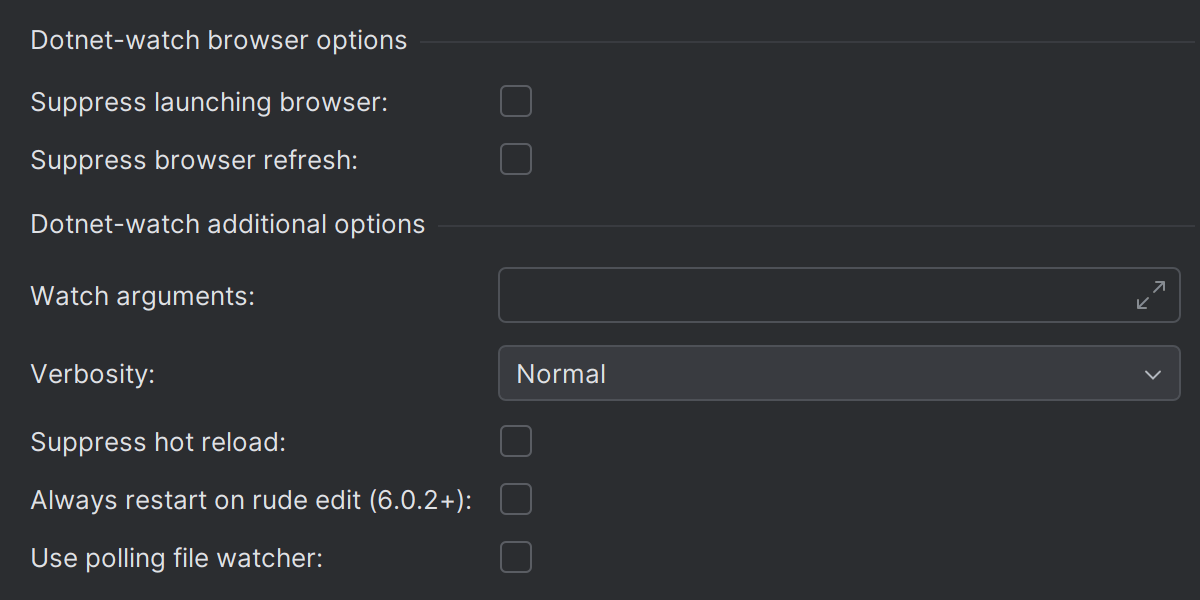
Support for dotnet watch as a run/debug configuration
Rider 2025.1 introduces a dedicated run and
debug configuration for dotnet watch,
streamlining the development workflow for
projects that need automatic rebuilding and
restarting as code changes.
This enhancement particularly benefits
ASP.NET Core and .NET developers, as it
continuously builds your application when you
modify .cs, .html, or .css files. The
feature also extends to test files, enabling
automatic test execution whenever your code
changes.
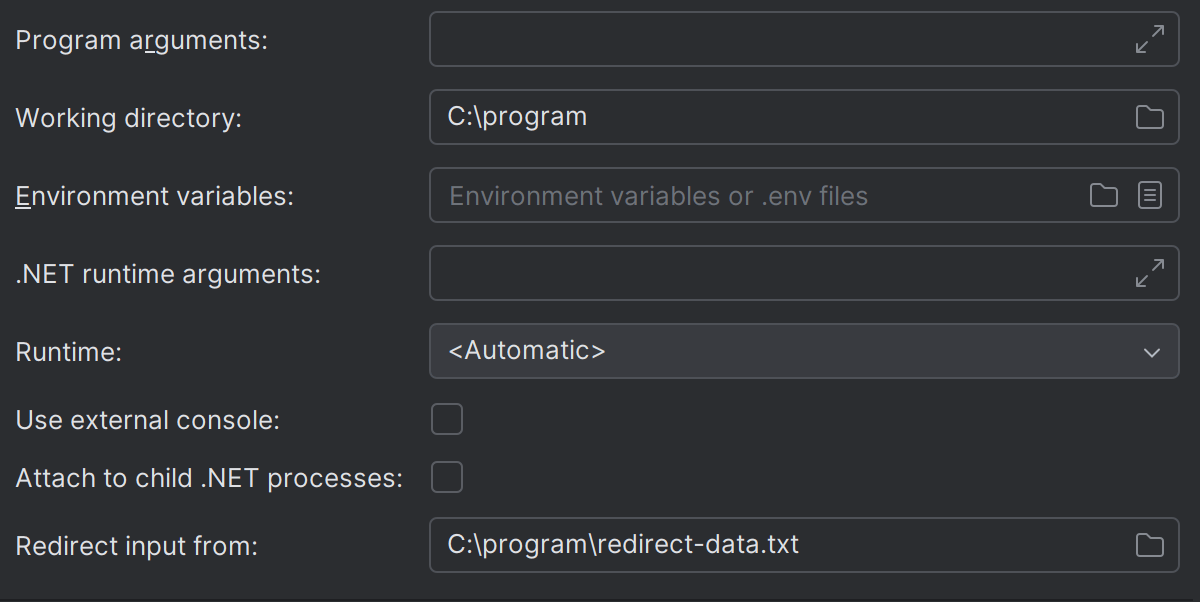
Input/output redirection for run configurations
Input and output redirection for run
configurations is available in Rider 2025.1.
You can now easily specify a file to be used
as standard input (stdin) and direct
program output to a file, streamlining
debugging and testing workflows.
Additionally, you can now attach log files to a run configuration. These files will then be shown in separate tabs in the Run or Debug tool windows during program execution.
Easier environment variable configuration with .env files
Rider 2025.1 simplifies the management of environment variables. Instead of manually
entering variables, you can now use .env files directly in your run/debug configurations.
Look for the folder icon (Browse) next to the Environment Variables field to attach your .env
files. Rider will load them on the next launch. You can even use multiple files across different
projects to maintain consistent configurations.
Version control systems
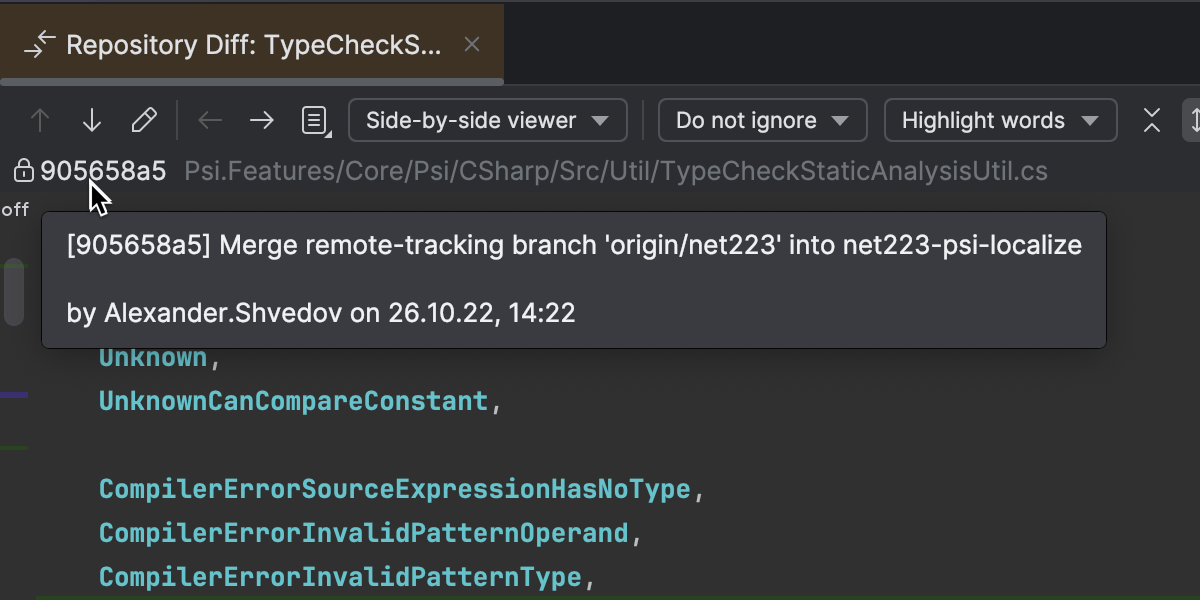
Commit details in the diff view
You can now see commit details directly in the diff view. The diff dialog now displays the commit message, author, date and time, and full commit hash, giving you a clearer view of a file's history and helping you understand modifications faster.
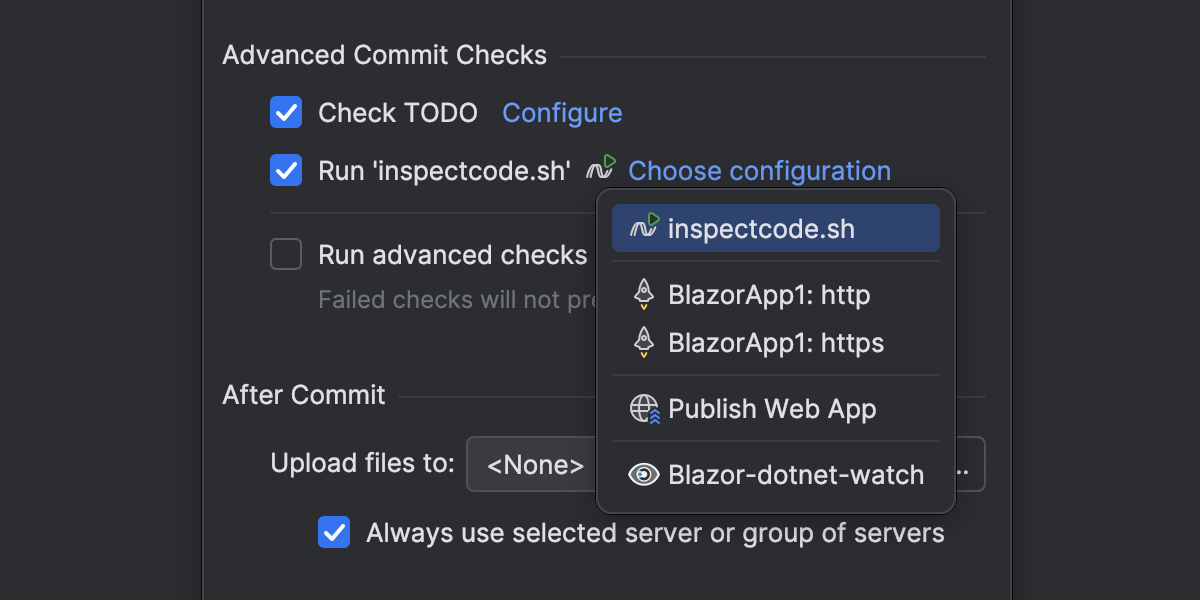
Option to run tools for pre-commit checks
You can now launch any tool to perform a pre-commit check alongside inspections and formatting. Custom checks can be configured as run configurations in the Run Configuration dialog. This helps you catch potential issues early and ensures your code meets project standards before it's committed.
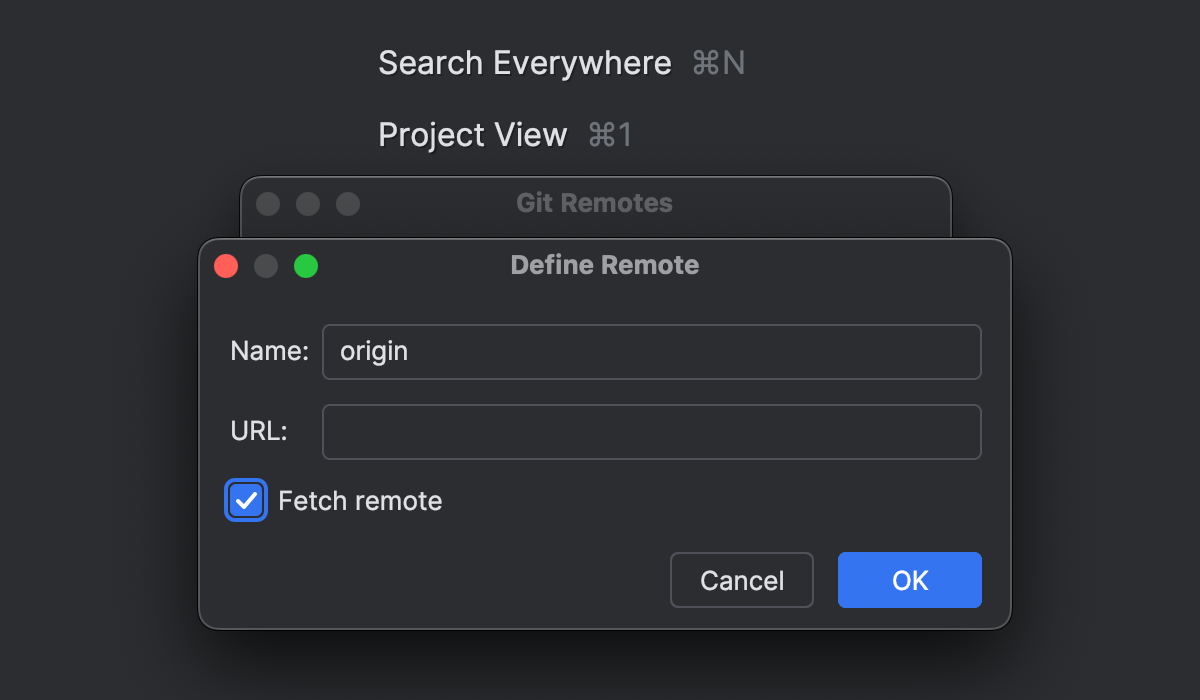
Automatic fetch when adding or modifying a Git remote
Rider now automatically fetches changes when you add or update a Git remote, ensuring you always have the latest branch list and commit history without needing to fetch them manually. Newly fetched branches will immediately appear in the Git branch tree. You'll be able to start working with them right away, and your repository will always be up to date.
For more information on VCS updates, please see this page.
Game development
NoesisGUI framework support
We've added support for the NoesisGUI framework for both Unreal Engine and Unity projects.
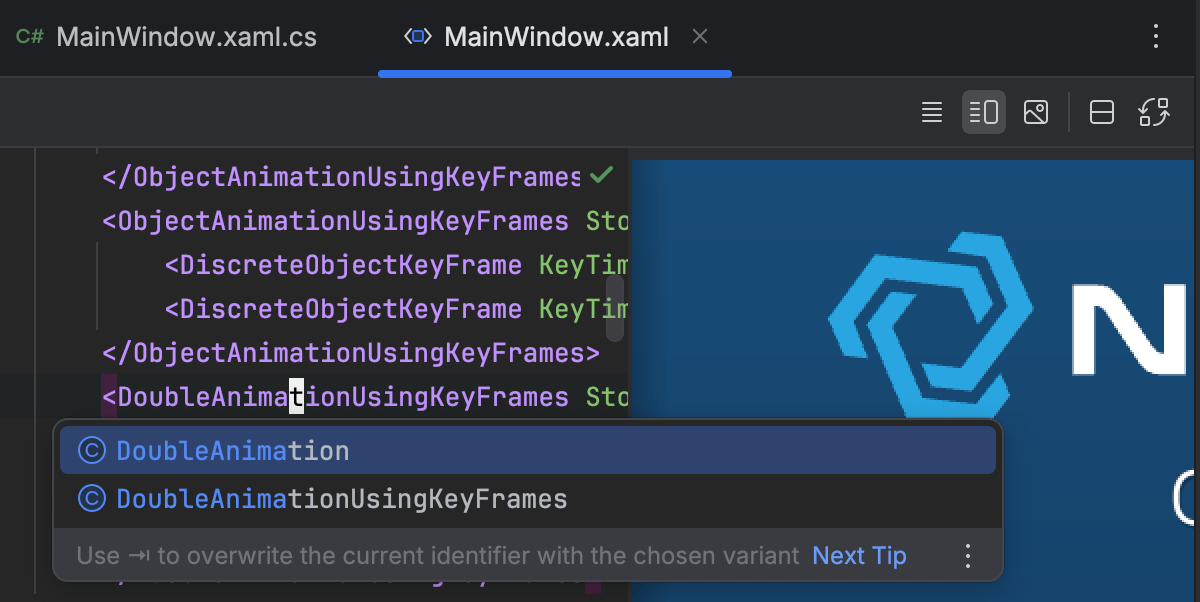
Rider will use the NoesisGUI language server for code completion of XAML elements and binding expressions, as well as for highlighting errors and displaying error description tooltips. Rider will also now provide a preview of the interface described by the XAML file.
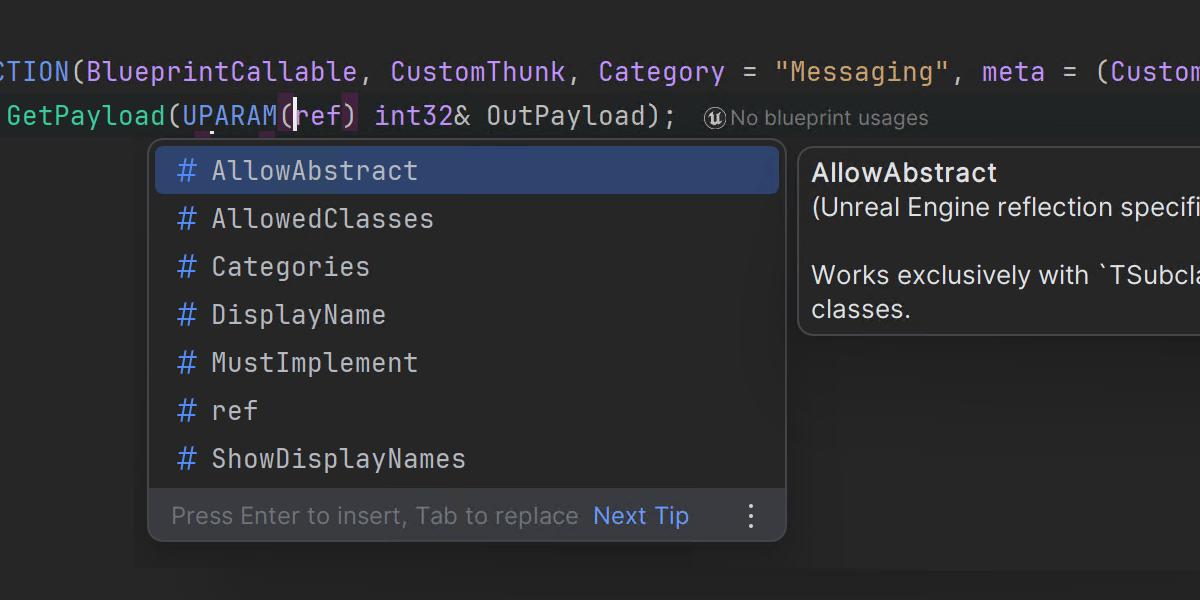
Unreal Engine
While our main focus for this release was on the debugger, we still had time to work on several
Unreal Engine-related updates and fixes, such as for the issue causing Rider not to run unit
tests created from the ComplexTest template. Rider will now recognize and highlight UMETA
and UPARAM reflection macros, providing code completion and tooltip documentation for both
the macros and their attributes.
We've also been working on optimizations for Blueprint indexing. We've reduced memory usage and made more parts of the process run asynchronously on a background thread. This should result in a more responsive experience while Rider indexes your Blueprints the first time a solution opens.
Debugger
We've implemented many useful updates for the native debugger in this release, including significant performance improvements that make stepping in very large projects up to 50 times faster! You can find more details in this blog post.
Rider's support for Natvis files has been
improved. Now, Natvis files are automatically
loaded from the AppData folder, and there is
a new option to specify custom locations
containing more files.
Rider will now recognize synthetic items in Natvis files, which means the debugger will show additional nodes when displaying the contents of a type.
The debugger can now automatically attach to child processes, and custom rules can be applied to specify which child processes it should attach to or ignore.
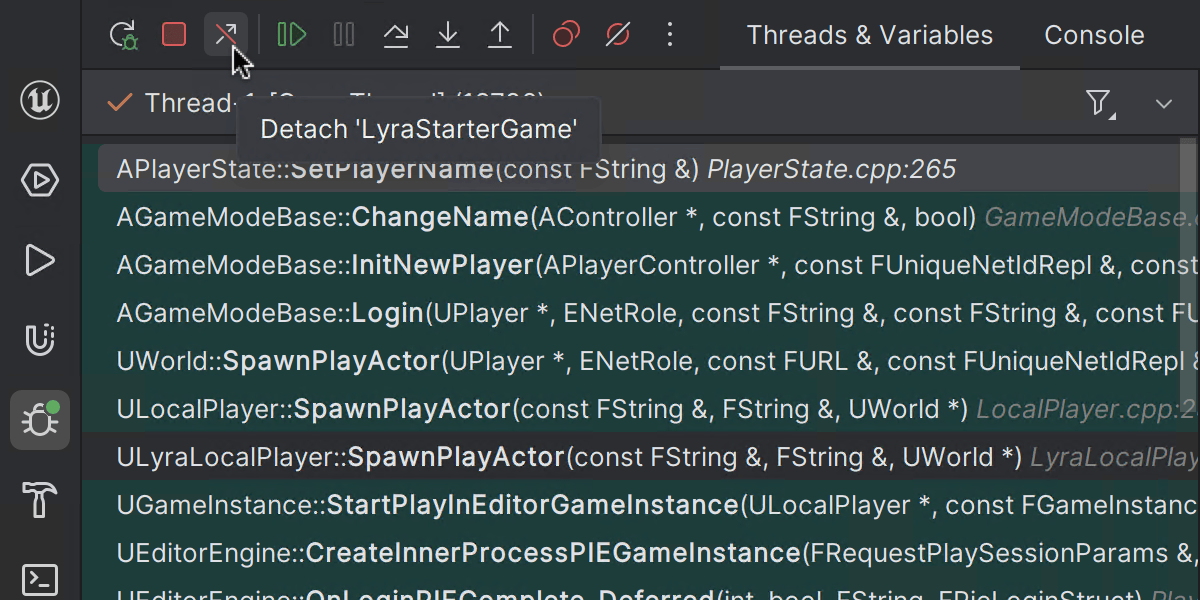
The Detach process action now works with native applications.
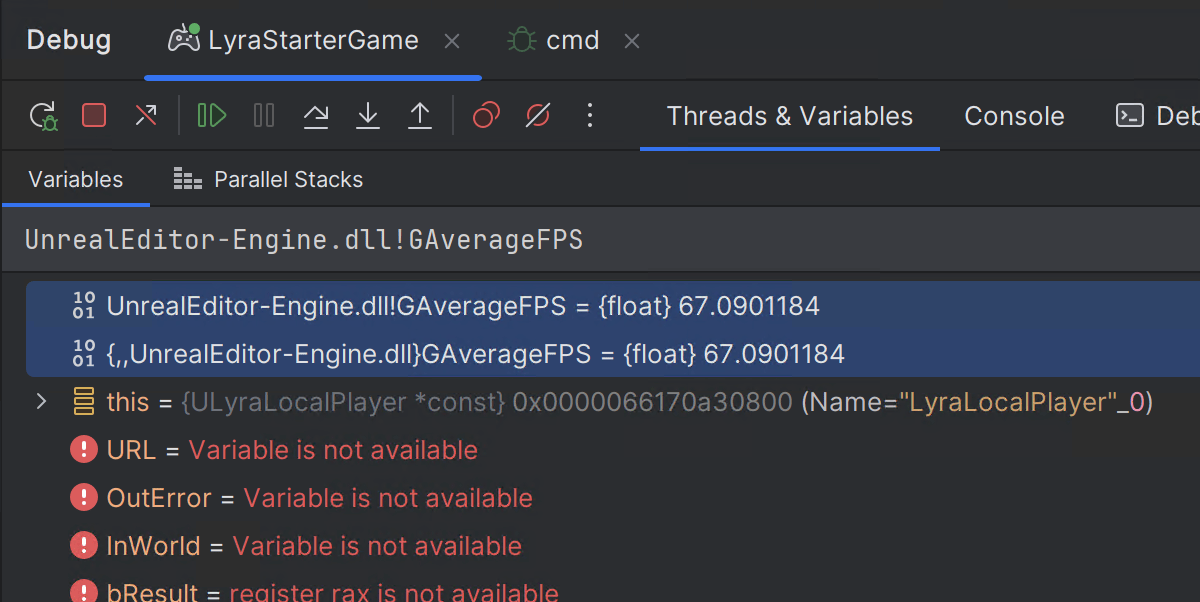
You can use module.dll!expr syntax to
specify the context operator for an
expression, telling the debugger where to
look to resolve a symbol in a variable or
breakpoint.
Unreal Engine projects also benefit from updates to the ReSharper C++ engine, including the new Inline Macro refactoring and the implementation of a popular request from users to allow the use of different syntax highlighting for various keywords. See the What's New in ReSharper C++ page for more details.
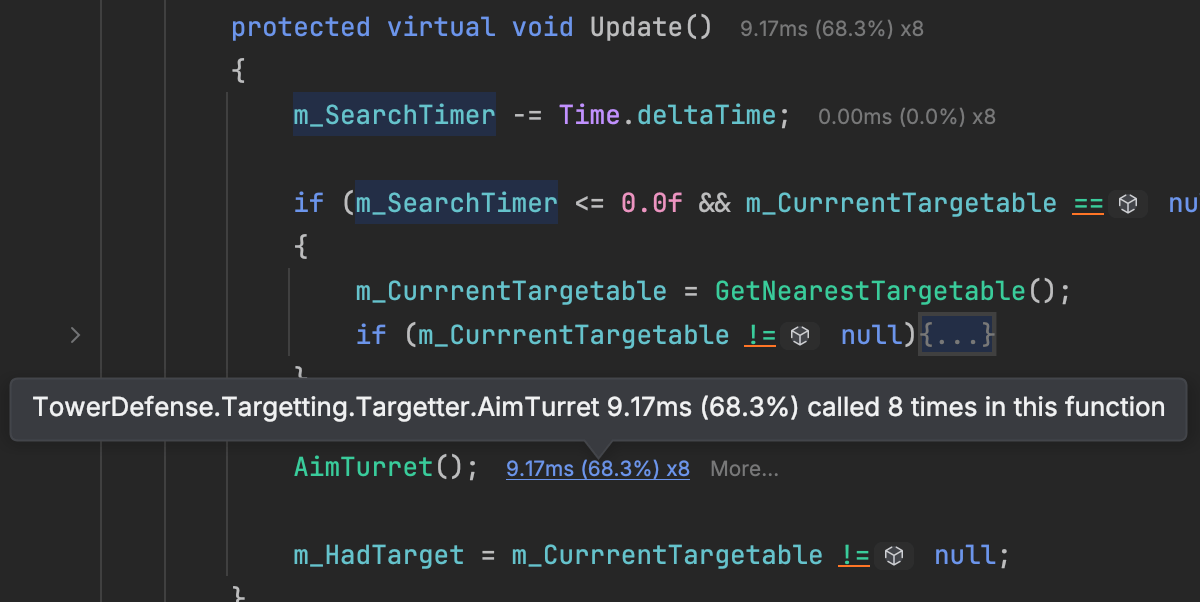
Unity
We've added an experimental integration with Unity's profiler. Once you've enabled it in the settings, clicking an entry in the profiler's Hierarchy view will open the file in Rider and show profile information for each line.
Learn more about this feature from Rider's documentation.
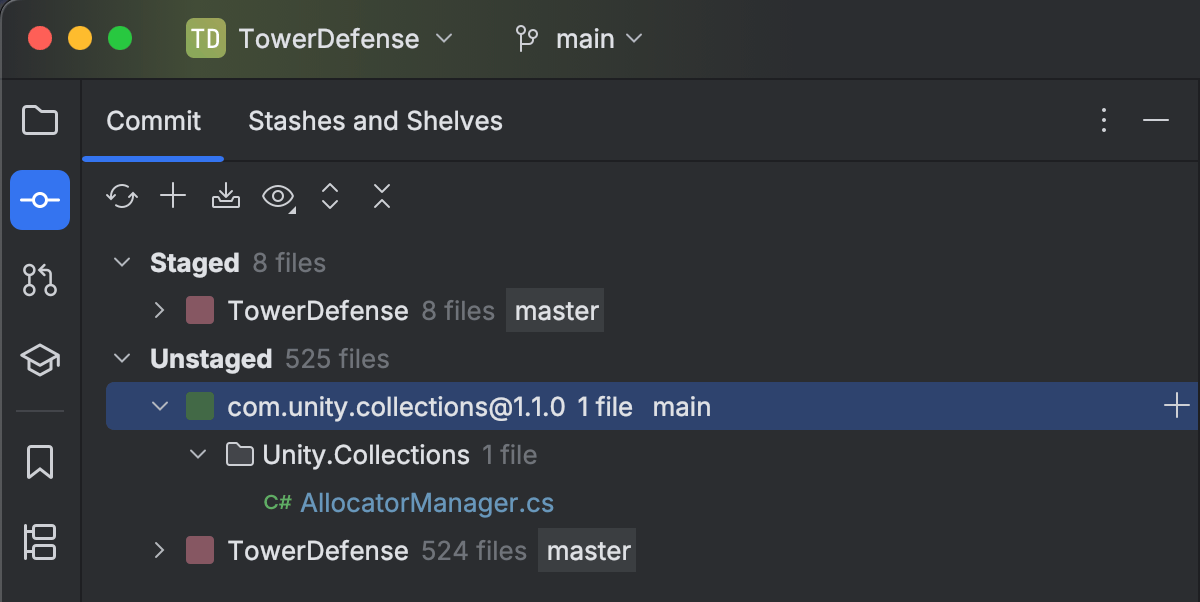
The IDE now correctly recognizes the version control bindings for packages added as external folders. This means you can commit to both your main project and any external package folders that you're working with.
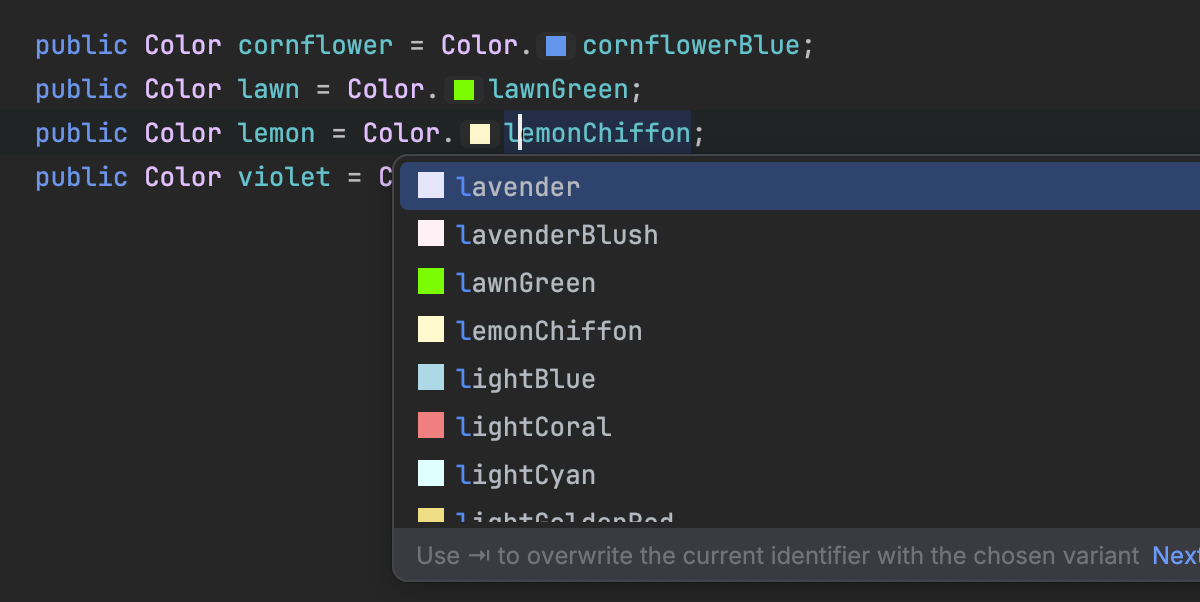
Rider's color highlighting now supports the additional named colors added in Unity 6.
Rider's remote development support now works better with Unity projects. Specifically, the shader variants selector is now available, and the Unity Explorer view will now correctly select the open file.
We've made some fixes to the Rider package bundled with Unity. For example, root namespaces are no longer occasionally missing, the Unity editor log file can be opened directly from the Unity settings page, and Rider entries are no longer duplicated on Linux.
Godot
Rider's support for Godot now supports .uid files, which were introduced in Godot 4.4. When
files are moved with Rider or renamed with a refactoring, the corresponding .uid files are
moved together to maintain project integrity.
Hot Reload now works for Godot C# projects, meaning that changes to C# code can be compiled and applied while the program is suspended at a breakpoint during debugging.
This release eliminates an unnecessary warning about a missing default constructor on abstract classes. We've also contributed a couple of pull requests to Godot to improve integration with Rider, such as one for automatically configuring an external editor's command line arguments when the selected editor is changed.
Cloud development
Support for Azure Function projects
Rider 2025.1 now supports running and debugging Azure Function projects via the .NET Aspire and the Azure Toolkit for Rider plugins. Please share any feedback you might have on the functionality in the comments on this ticket.
Support for AWS Lambda Function projects in .NET Aspire
The .NET Aspire plugin now also supports running and debugging AWS Lambda Function projects in Rider. For more information, please see this GitHub issue.
Support for remote debugging of Azure App Services
Rider 2025.1 now supports remote debugging of Azure App Services projects via the Azure Toolkit for Rider plugin (Azure Functions and Azure Web Apps are supported).
Web development
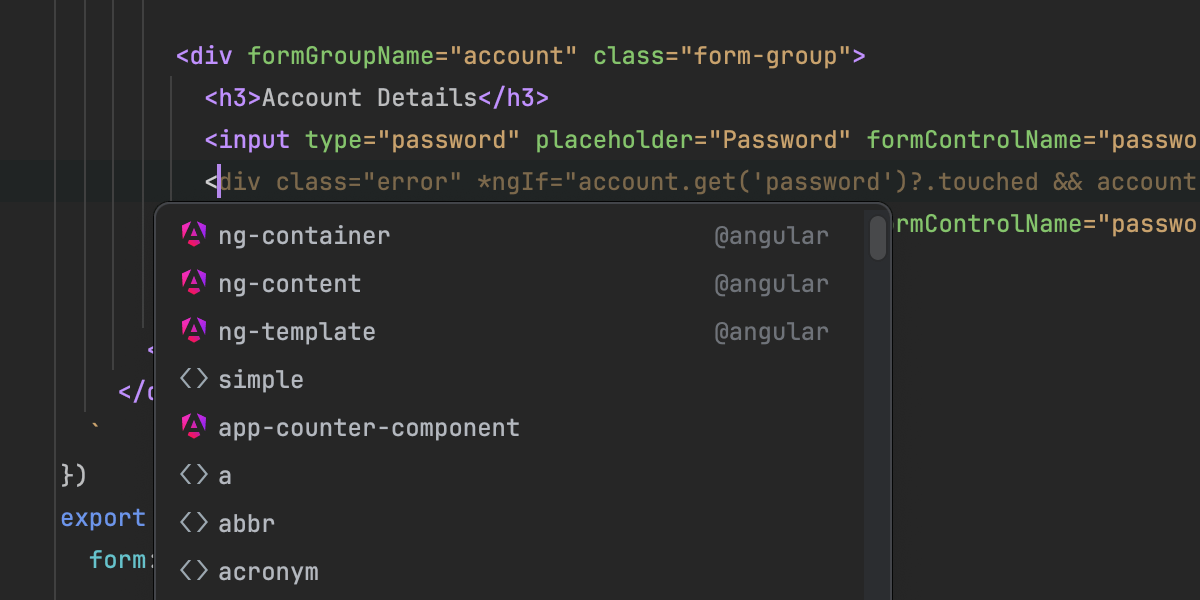
Enhanced Angular support
Rider 2025.1 comes with a host of improvements for Angular, namely:
- Enhanced support for host bindings.
- Support for Angular 17.2 signal queries.
- Better support for reactive forms.
- Improved property suggestions for Angular bindings.
- Easier refactoring between inline and external component templates.
Proper support for Blazor WebAssembly publishing
Rider 2025.1 introduces proper support for Blazor WebAssembly (WASM) publishing. You can
now use the .NET Publish | Publish to Folder configuration, which will use
browser-wasm target runtime without encountering missing files in the output.
TypeScript smarter quick-fix prioritization with the service-powered type engine
Rider now prioritizes service-powered quick fixes, especially for imports, when internal suggestions are unavailable. This ensures that relevant fixes appear first, reducing friction in resolving issues and improving the overall coding experience.
For more detailed information, visit the What's New in WebStorm page.
Miscellaneous
Code With Me
Previously, to start a Code With Me session in Rider, you had to manually enable it using the Enable Code With Me action and performing a restart. In Rider 2025.1, this step is no longer necessary — you can start a collaborative session right away without restarting the IDE.
JetBrains terminal: New architecture Beta
The 2025.1 release introduces the reworked terminal architecture, which is available in Beta. The terminal now runs on a stable, standards-compliant core and uses the IDE's editor to render the UI. This change lets us introduce new features while preserving compatibility and performance across various platforms, whether local or remote. Get more details about our plans and progress in this blog post.
Decompiler
Rider 2025.1 brings several improvements to the decompiler, enhancing support for the latest C# features and improving code readability. Here's what's new:
- Support for required members.
-
Added support for the new
System.Threading.Locktype introduced in C# 13. -
Support for
reffields andscopedparameter modifiers. -
Support for
allows ref structgeneric anti-constraint. -
Pattern-based using for
ref structtypes. - Support for string interpolation.
- Certain integer constants in decompiled code now include commented hexadecimal representations for better readability.
- Support for file-scoped namespaces.
